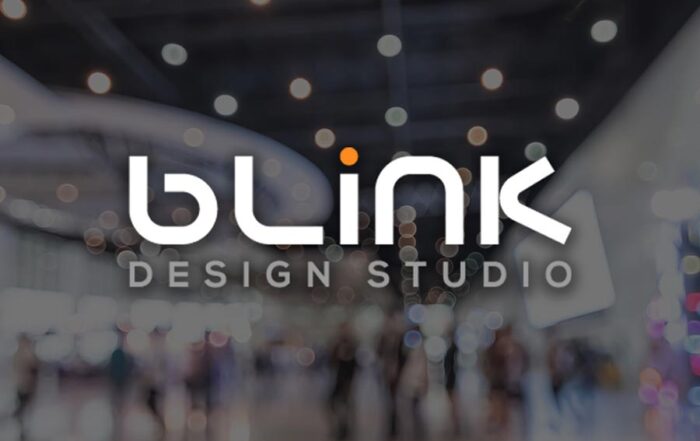Exhibition planning can be a complex task that challenges even the most experienced professionals. It requires meticulous coordination of a multitude of elements, from theme conceptualization to final execution.
Each step along the way requires careful deliberation and strategic planning. This article will help you navigate the complex process of exhibit planning, enabling you to design exhibit booths and trade show presentations that will capture the attention of your target audience and create a lasting impression.
Understanding exhibit planning

Exhibition planning is not simply about organizing an event; it involves a series of strategic and well-orchestrated activities. From budgeting to marketing, logistics and post-event analysis, exhibit planning is a multifaceted process that requires excellent organizational skills and attention to detail.
Exhibit planning is also about creating an engaging experience for attendees. This involves careful selection of a theme, designing eye-catching exhibit booths, planning interesting trade show presentations, and making sure that every aspect of the event is aligned with your brand’s image and message. This level of detail is what differentiates an ordinary event from a memorable exhibition.
The conceptual stage
The conceptual stage is where you lay the groundwork for your show. At this point, you’re choosing a theme, setting goals, identifying your target audience and building a plan that will bring your vision to life. Your concept must not only resonate with your brand message, but it must also be compelling enough to attract visitors.
While generating ideas may seem daunting, hiring experts in the field can be incredibly beneficial. They bring a wealth of experience and knowledge to the table, providing insights that can enhance your planning process. Whether it’s advising on the latest trends or recommending ways to maximize your budget, experts can add significant value at this stage of exhibit planning.
Exhibition stand Design
Designing exhibition stands is an art in itself. This is the stage where you transform your concept into a physical reality. Your exhibition booths must not only be visually appealing, but also functionally designed to facilitate interaction with visitors. You should consider factors such as layout, lighting and product display when planning your booth design.
Exhibit booth design experts can help you make your booths stand out. They understand how to effectively use space, color and lighting to create booths that are not only attractive, but also efficient.
Presentations at trade fairs
Trade show presentations play a key role in attracting and retaining visitor interest. These can range from digital displays to banners, product demonstrations and interactive activities. When planning an exhibit, it is essential that the design and content of your presentations align with your overall theme and effectively communicate your brand message.
The key to an effective trade show presentation is balance. While it is essential to showcase your products or services, it is also important to provide information and engagement opportunities. Interactive presentations, such as touch screens, augmented reality experiences or live demonstrations, can help create a more engaging and memorable experience for visitors.
Planning an exhibition: Logistics
Logistical planning is one of the most critical aspects of exhibition planning. This includes securing the right venue, determining the best space allocation, organizing the necessary equipment and coordinating with vendors. It requires meticulous attention to detail, strong organizational skills and the ability to anticipate and resolve potential problems.
Coordinating logistics also involves managing deadlines to make sure everything is ready in time for the event. This may include coordinating booth set-up, arranging transportation of materials and scheduling staff. Despite the complex nature of logistical planning, it is a crucial element that contributes significantly to the smooth execution of your event.
Marketing and Promotion

Execution is where all your exhibition planning becomes reality. It involves coordinating your team, managing technical support and ensuring excellent customer service. By keeping your team well informed and prepared to handle any last-minute issues, you can ensure the smooth execution of your event.
Evaluation, although often overlooked, is a vital part of exhibition planning. It involves gathering feedback, measuring the success of your event against your objectives and identifying areas for improvement. Every show is an opportunity to hone your skills and improve for the future.
Why hiring experts can be profitable
While it is possible to handle exhibit planning in-house, hiring experts can significantly elevate the quality of your event. Professionals in the field bring years of experience and expertise in exhibit planning, exhibit booth design and trade show presentations. They can help streamline your planning process, provide innovative solutions and ensure the smooth execution of your event.
One such highly recommended expert firm is Blink Studio. With a track record of successful exhibitions, they bring a unique combination of creativity and precision. Their understanding of brand narratives, combined with their technical expertise in exhibit booth design, ensures that your message is delivered in an effective and engaging manner. Blink Studio can provide you with support in all aspects of exhibit planning, making the process smooth and stress-free.
Hiring experts like Blink Studio not only helps improve the quality of your exhibit, but also allows you to focus on other important aspects such as networking and relationship building. Their knowledge and experience can be the differentiating factor that takes your exhibit from good to great. Whether you are an experienced exhibitor or planning your first event, having professional help can make a big difference in your exhibit planning experience.
Summary
Mastering exhibition planning involves understanding every phase of the process, from concept to execution. It requires careful planning, creativity and flawless execution.
Whether you’re designing exhibit booths, planning trade show presentations or organizing logistics, every detail contributes to the overall success of your event. By hiring experts, you can ensure that every aspect of your exhibit planning is handled professionally, leaving you free to focus on achieving your business goals.

